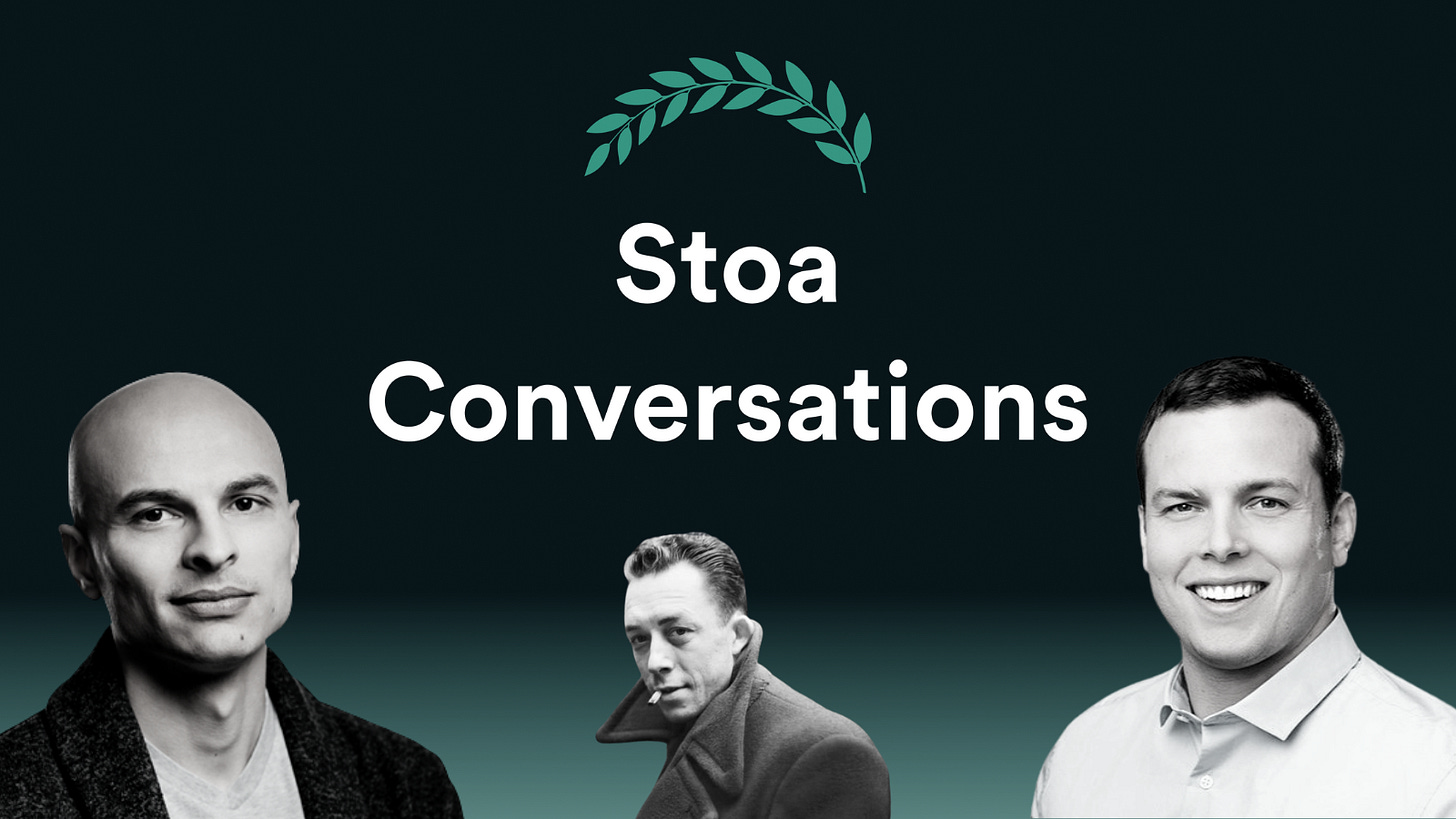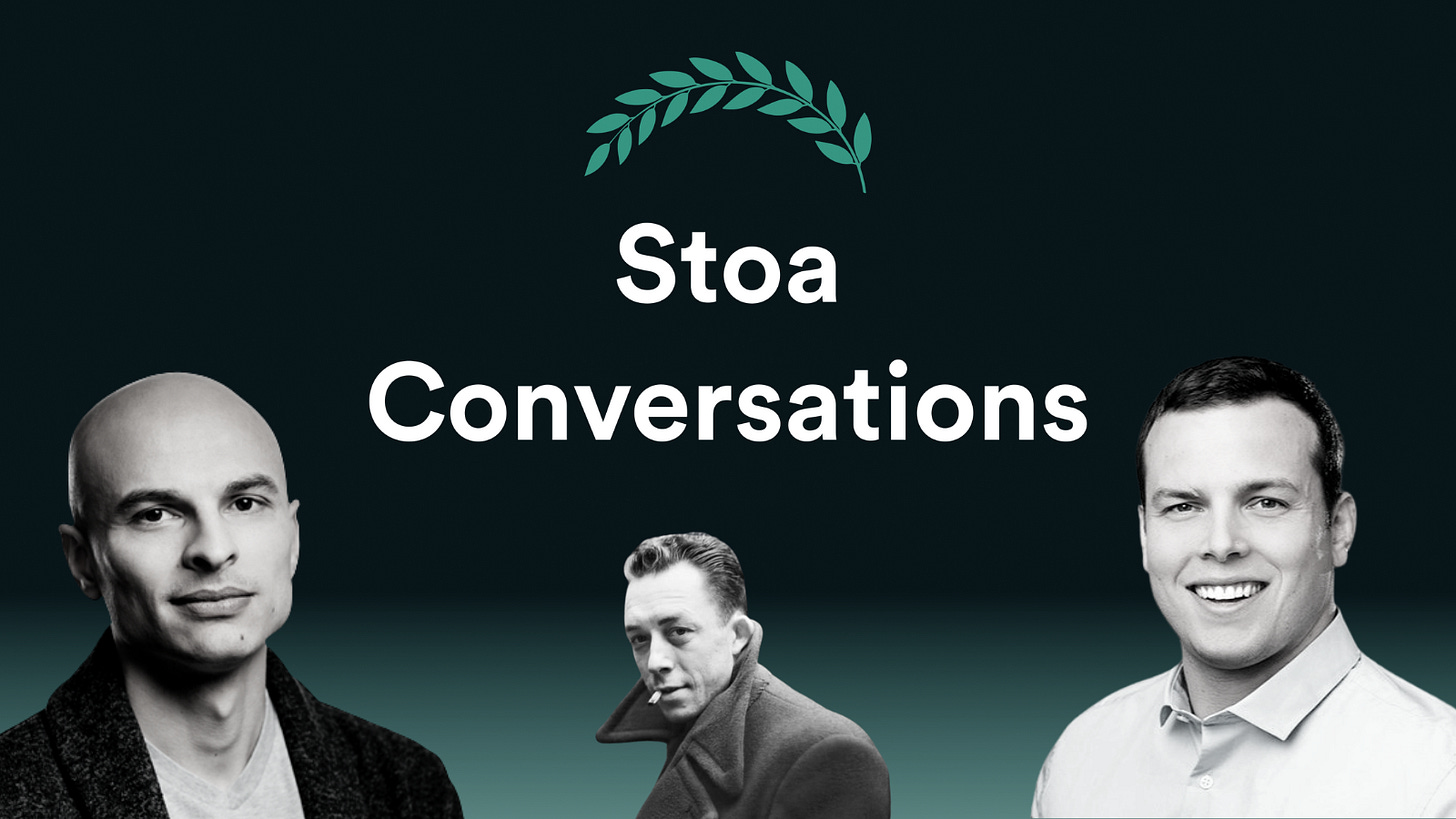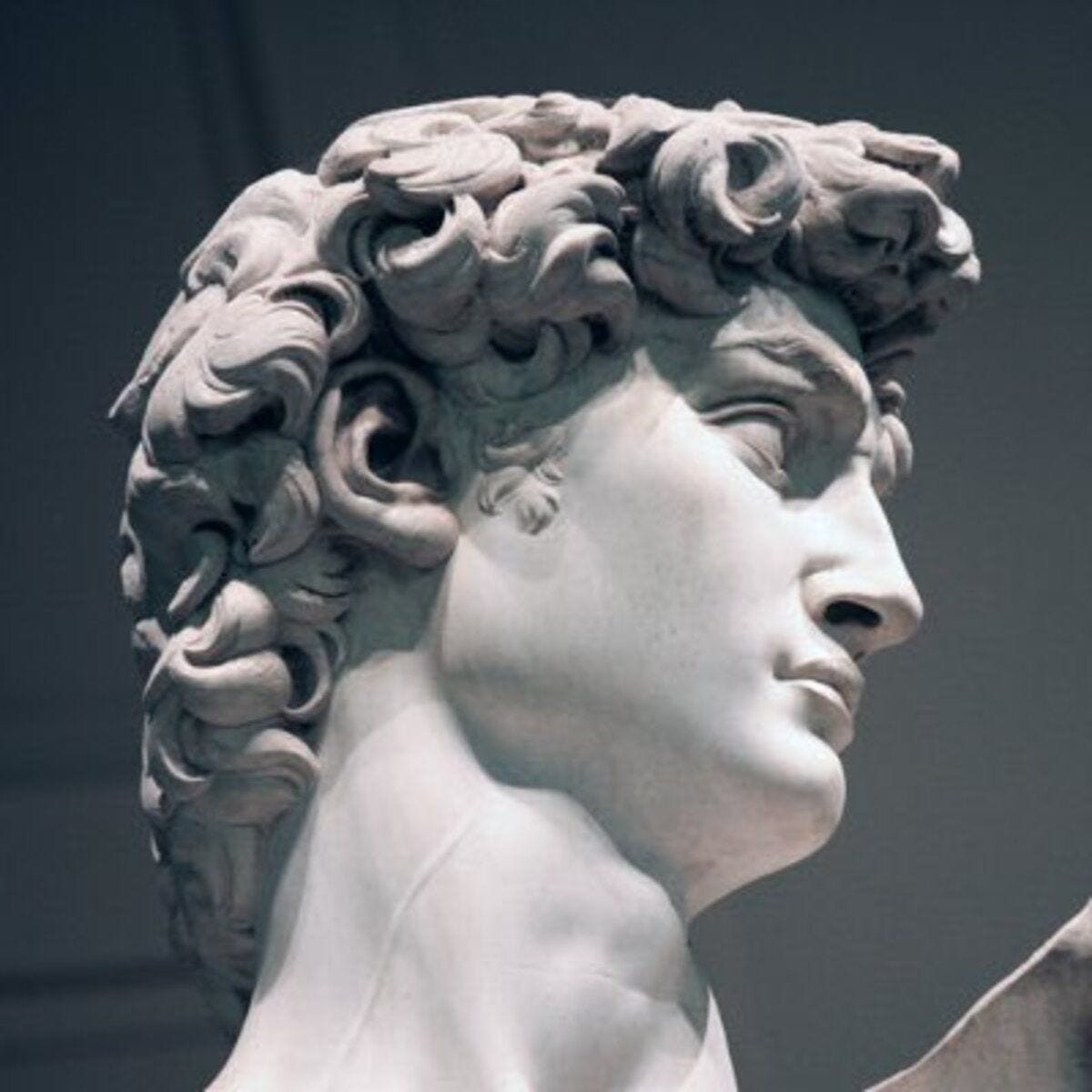Learning From The Existentialists
Visiting another philosophy of life
Welcome to The Stoa Letter, the newsletter on Stoic theory and practice.
🏛️ Theory
From different philosophies, we can find different lessons.
As Seneca said:
Shall I not follow in the footsteps of my predecessors? I shall indeed use the old road, but if I find one that makes a shorter cut and is smoother to travel, I shall open the new road. Men who have made these discoveries before us are not our masters, but our guides. Truth lies open for all; it has not yet been monopolized. And there is plenty of it left even for posterity to discover.
Moral Letters 33
Seneca himself liberally quoted philosophers from the rival Epicurean school.
Today, let’s follow in his footsteps and look at a modern rival philosophy: Existentialism.
Existentialism rejects the idea that humans have a nature. Instead, “existence precedes essence.” What that means, essentially, is that we exist and then must choose who we are.
This contrasts with the Stoics who see the human being as essentially a rational and social animal. That’s an abstract idea – but that one that guides a Stoic: their purpose is to pursue knowledge and live in a prosocial way. Getting more concrete, the Stoics remind us that we find ourselves in different roles. I’m a brother, child, husband, neighbor, boss, and so on. The Stoic urges us to be excellent – rationally and socially – in each of these roles.
We could spend hours on the differences between the two philosophies, but I think that’s the central one. Today I want to pull a lesson from Existentialism: because “existence precedes essence” the existentialists believe that we’re radically free.
Yet we live like we’re not. The existentialist philosopher, J. P. Satre, has a fine example of this from a date he witnessed. During the dinner, he watched a man reach out his hand and meet his partners. She held her hand limp. She neither welcomed nor rejected the gesture. That is she didn’t decide what to do – but left her hand there. Passive.
The Existentialists say we all do things like this. Life presents us with choices – but we don’t choose. We come up with stories that deny our agency. We blame our situation on our environment or nature. We don’t recognize that we’re free. That’s what it is to be human.
Despite philosophical differences, Stoics can learn from this. The Stoics too thought that we were free in our ability to respond to the impressions that life throws our way. At each moment we are choosing to agree to – or reject – impressions. Freedom is within reach. As Seneca writes:
I have set freedom before my eyes; and I am striving for that reward. And what is freedom, you ask? It means not being a slave to any circumstance, to any constraint, to any chance; it means compelling Fortune to enter the lists on equal terms. And on the day when I know that I have the upper hand, her power will be naught.
Moral Letters 51
The Existentialists should remind us to ask ourselves: am I free? Do I recognize my power?
🎯 Action
Don’t sleepwalk through life.
🔗 Links
🎧️ Michael and I discussed Existentialism here. Michael and I talk about authenticity, bad faith, and radical freedom:

Existentialism 101 for Stoics (Episode 101)
stoameditation.com/blog/existentialism-101-for-stoics-episode-101

🎵 Here’s a paradoxical way the difference between Stoics and existentialists is brought out: for the Stoics, not every choice is free. For example, when we make choices that overvalue externals – wealth, status, and pleasure – we’re slaves.
🏛️ Michael also included a bite-sized lesson on Existentialism in the Philosophies Of Life course in the Stoa app. Check it out.
📊 Temperance won the last letter’s poll by a large margin.
What is the most underrated Stoic virtue today?
🟨🟨⬜️⬜️⬜️⬜️ Wisdom 🦉 (18)
🟨⬜️⬜️⬜️⬜️⬜️ Courage 🦁 (16)
⬜️⬜️⬜️⬜️⬜️⬜️ Justice ⚖️ (5)
🟩🟩🟩🟩🟩🟩 Temperance 🍶 (48)
⬜️⬜️⬜️⬜️⬜️⬜️ Other ❓ (2)
89 Votes
I was struck by a comment from a reader, Dave:
“It seems to me that to recognise when you have enough, and to pursue no further often requires either wisdom, justice, or fortitude. Sometimes all three. The aforementioned virtues somehow have a lustre or nobility about them that is usually denied to temperance.”
📚️ Check out the Culture Critic for a weekly missive on the beautiful art and history of the past:

Culture Critic
Art, history and culture — join 100,000+ readers
What other philosophies of life do you want to learn more about?
🏆️ Share The Stoa Letter
If you find what we’re doing useful, please share it. Just have people sign up with your link below.
Share The Stoa Letter
{{rp_personalized_text}}
Or copy and paste this link to others: {{rp_refer_url_no_params}}
Get hundreds of Stoic meditations and lessons with the Stoa app (free download)

